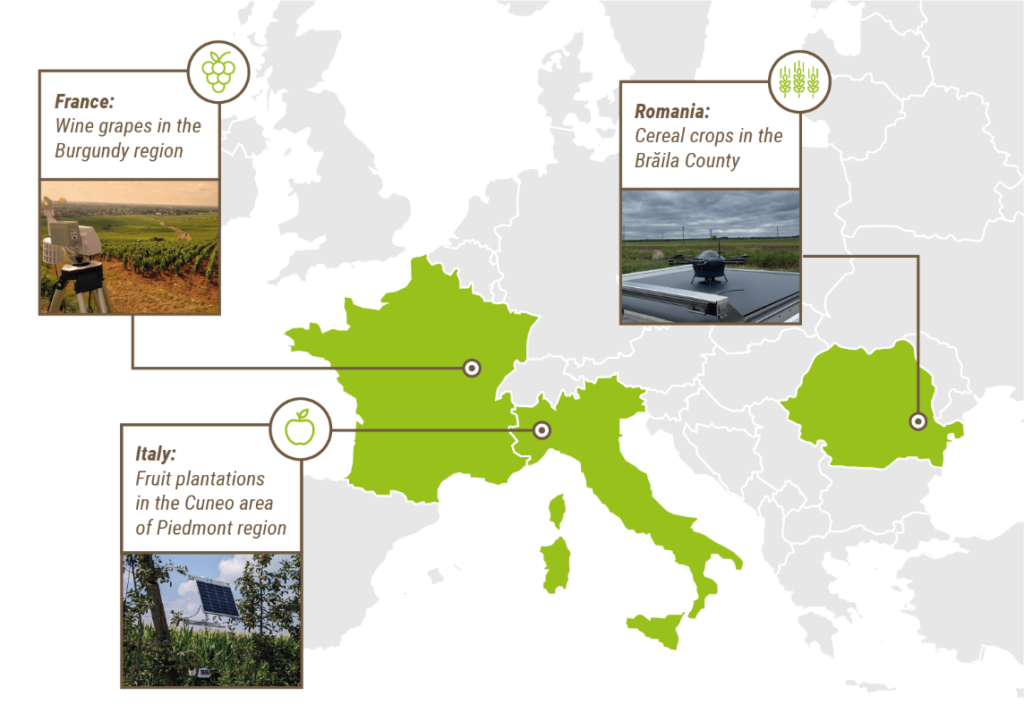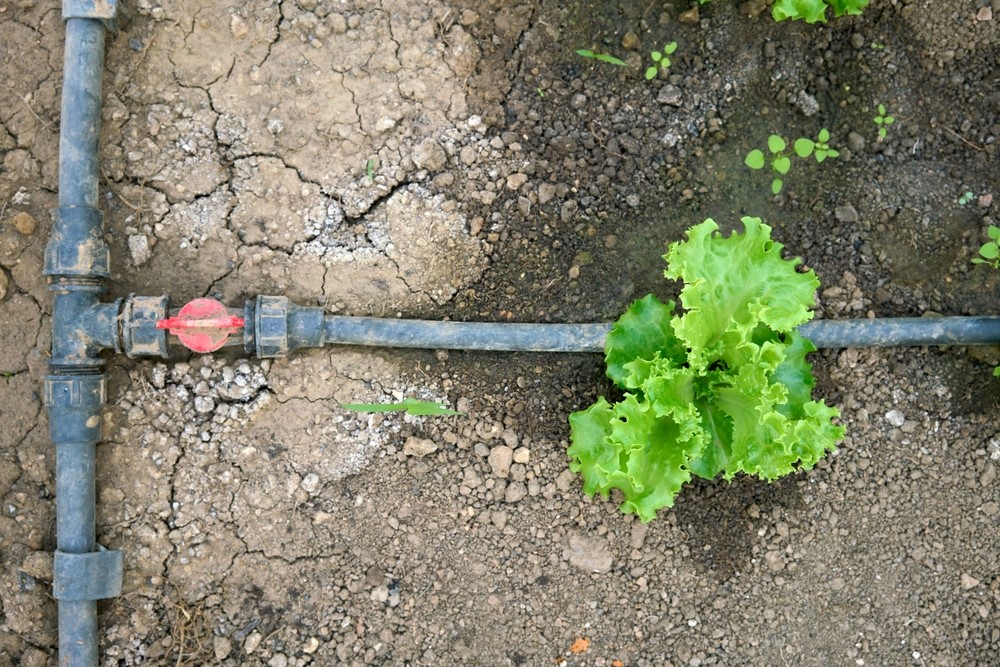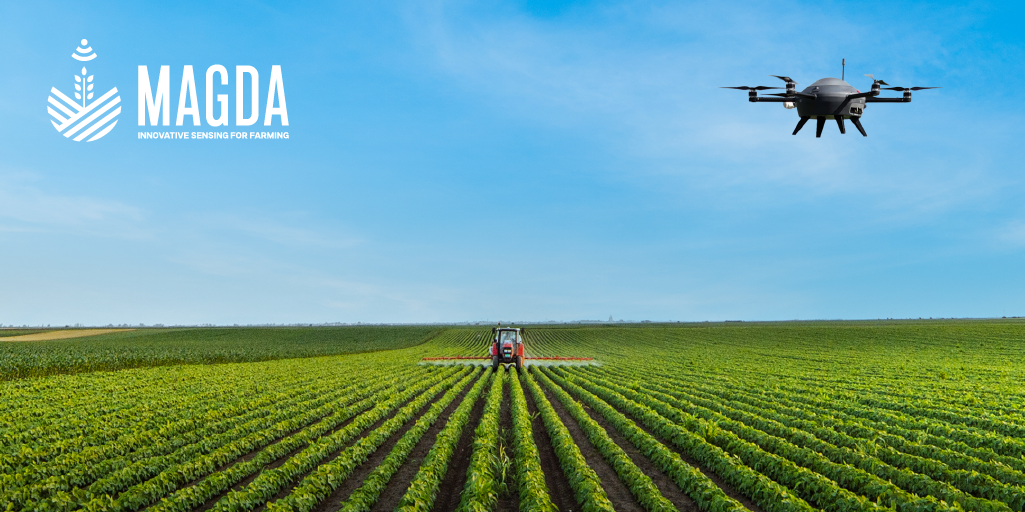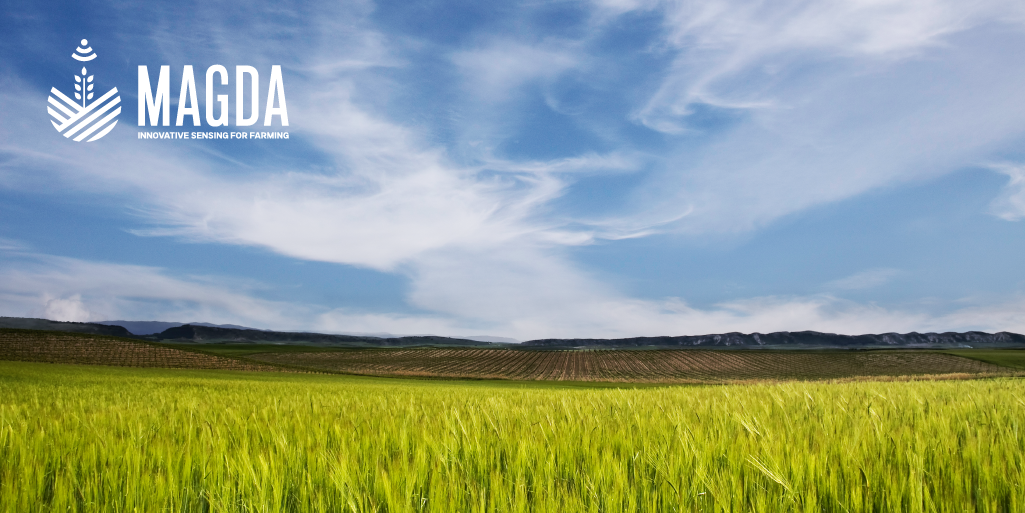
Tackling Environmental Challenges with Precision Agriculture and Innovative Farm Management
A user-centred approach to gathering user requirements for modern farm management systems
The modern farming landscape is being transformed by precision agriculture and farm management systems. Agricultural operators equipped with these innovative tools will be able to manage their farms better, from data-driven decision-making to protective measures against climate-related risks. MAGDA aims at developing a toolchain for atmospheric monitoring, weather forecasting and severe weather / irrigation / crop monitoring advisories, with Galileo, Copernicus and drone data at its core.
Farm management systems are at the heart of modern agriculture. From data-driven decision making to sustainable farming practices, such systems have great potential to increase efficiency and sustainability. The MAGDA project aims to deliver valuable weather and irrigation information directly to farmers. To this end, the project will provide a dedicated farm management system to help farmers meet the challenges of the future.
Tackling environmental challenges
Extreme weather events such as droughts and heatwaves are becoming more frequent. To mitigate the effects, agricultural operators need to utilise every available tool to reduce the use of precious resources and increase productivity. Farm management systems can help improve the efficiency of common farming practices by turning data into valuable insights, increasing efficiency and helping farmers to use available resources more effectively.
To meet future challenges, farmers need access to comprehensive information such as severe weather warnings and irrigation advice. This information will be provided by the MAGDA Farm Management System, which offers a dedicated dashboard for farmers. MAGDA solutions have been installed at three demonstration sites located in Italy, France and Romania, and will be tested over the coming months.
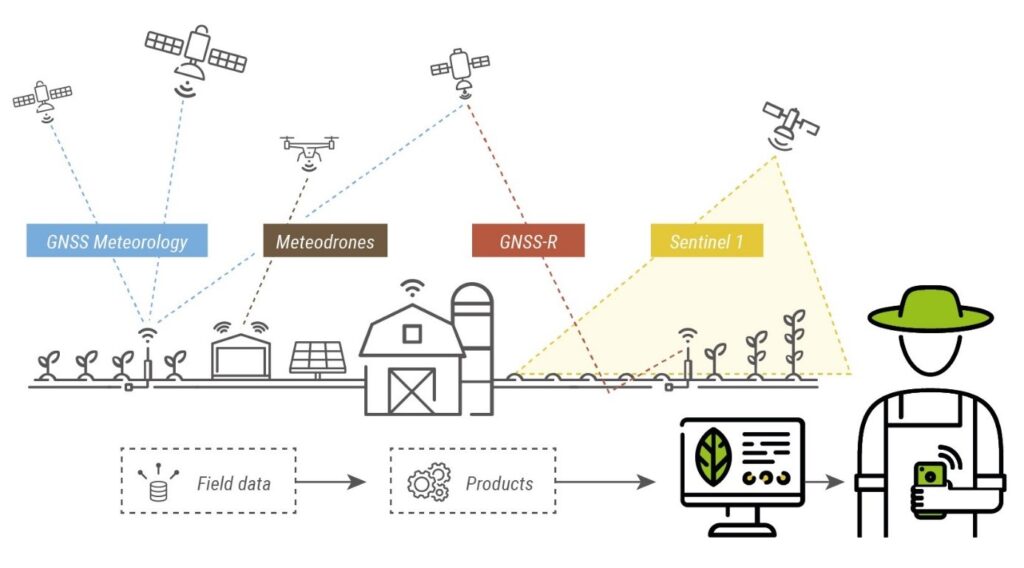
The user-oriented system can be deployed by farmers or farmer associations directly on their farms. It continuously feeds local ground and lower atmosphere observations into tailor-made weather forecasts and hydrological models. The main outcome of the project will be the provision of severe weather warnings and irrigation and crop advice to farmers through a dedicated dashboard.
User Requirements Surveys
MAGDA follows a user-centred approach to maximise both usability and acceptance by different user groups. To better understand user requirements, specific quantitative surveys have been conducted to gather data on the actual needs of potential end users such as farmers. The purpose of these surveys is to gain insight into end-user expectations and to define the practical and specific requirements of the MAGDA solution, taking into account a tailor-made approach for different target groups. This will provide representative data for specific target groups. A dedicated dashboard and APIs to existing farm management systems will enable the delivery of enhanced forecasts and irrigation advice to farmers.
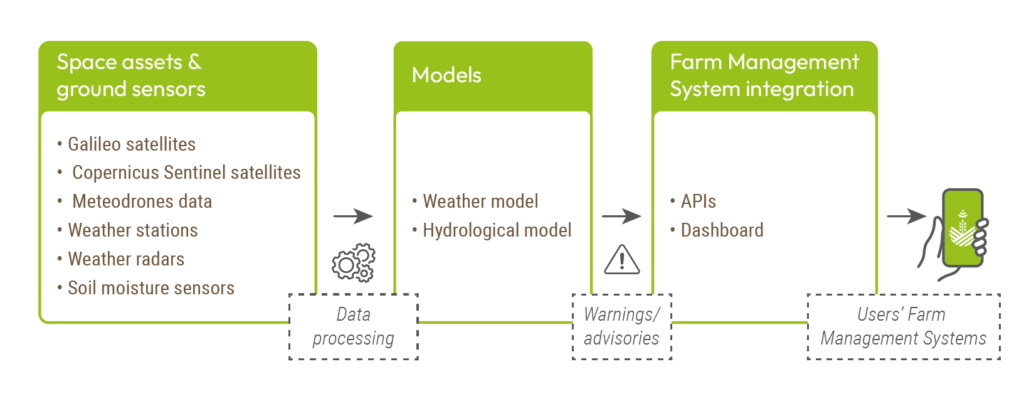
Target Groups
From the beginning, the MAGDA project has been designed to encourage users to express their real needs and requirements. This approach was closely followed through a structured method, including quantitative surveys tailored to different target groups. Two main target groups were identified to address the diverse needs of a wide range of stakeholders. The first target group includes, for example, agricultural organisations:
- Farmers
- Farm associations
- Farm advisories
- Agricultural industry
- Agricultural research organisations
The second target group covers the water sector, including
- National and regional hydrological services / hydrological companies
- Meteorological services / companies
- Water management authorities
- Hydropower companies
A comprehensive set of user requirements has been established through the results of collaborative surveys. These requirements will be updated and extended to provide a flexible framework for a wide range of end users.
MAGDA is being demonstrated on 3 farm locations with varying crop types, weather conditions and irrigation requirements. At each site, 3 Galileo-enabled low-cost dual-frequency GNSS stations were deployed. In addition, a Meteodrone base and in situ sensors (weather stations, soil moisture sensors) have been deployed. Copernicus Sentinel data were acquired for each site, along with additional GNSS and meteorological data required for modelling.
